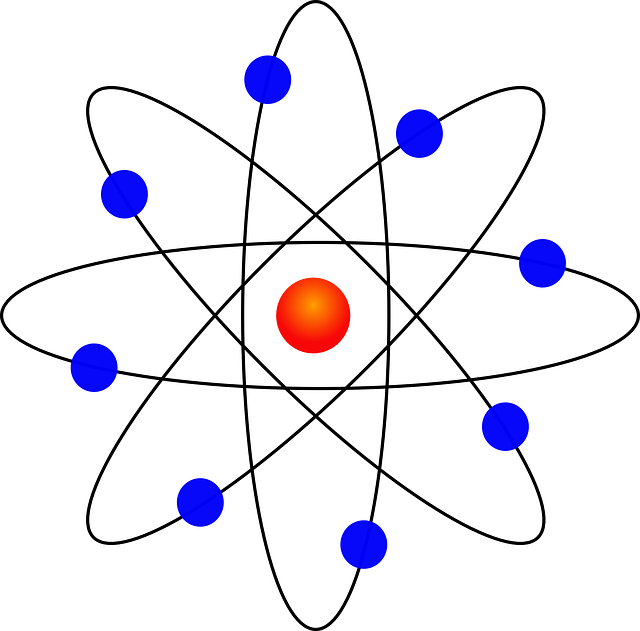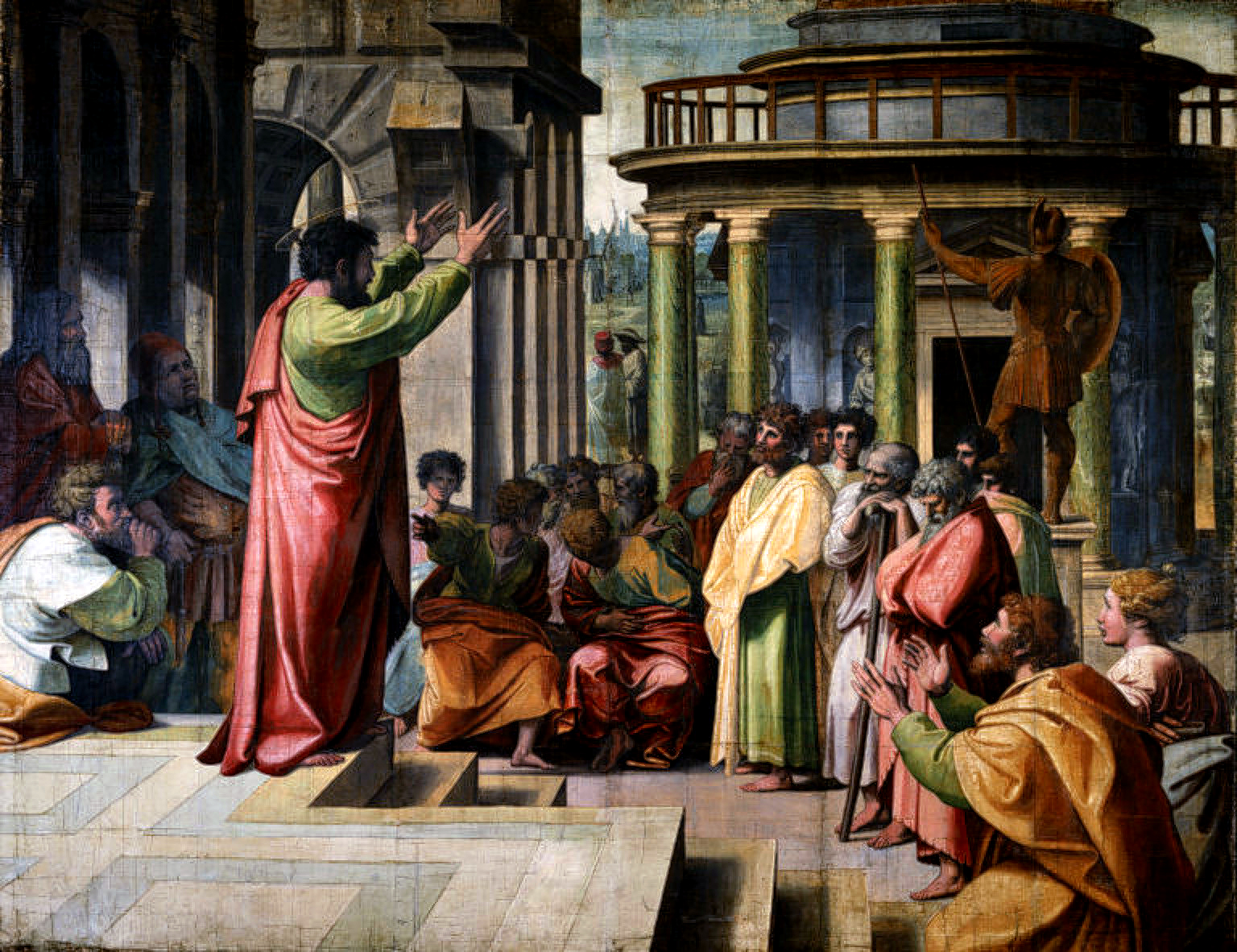Are Science and Christianity In Conflict?
For the past two articles, I’ve been seemingly giving science a bad rap. I talked about the questions it can’t answer, and how some people have made science into something of a religion. This may lead you to believe that Christians do not value science and feel it is incompatible with their beliefs. In this article, I’m going to show that this could not be further from the truth.
The Doctrine of General Revelation
Go outside and take a look around. Even without any special microscope or telescope, you can see the complexity of life around us. If you look up at night, you can see hundreds of stars. If you look out during the day, you can see the multilayered dance between plants, insects, animals, and the environment.
Christians believe that God has revealed himself to us in two ways – through the Bible (special revelation) and through the world around us (general revelation). The idea of general revelation is that we can come to know more about God by studying nature. In other words, by examining what makes up living cells, by learning about the building blocks of life, by using technology to see into the farthest reaches of the universe, we can come to realize how complex and finely tuned our existence really is. And, based on this realization, we can come to know that only a personal, loving supernatural Creator could have made all of this happen.
The idea of general revelation has motivated some of the greatest scientists who have ever existed. Let me list a few:
- Sir Isaac Newton – invented calculus, discovered multiple laws of motion, and developed the first reflecting telescope. Newton didn’t believe in the Trinity, but he was most definitely a theist.
- Marie Currie – pioneered radioactive research and discovered two new elements. Was a Roman Catholic
- Copernicus – groundbreaking astronomer who is most famous for determining that the sun was at the center of our galaxy and not the Earth. He was a Polish Roman Catholic.
- Johannes Kepler – a mathematician best known for his theories on planetary motion. He felt God had created the cosmos in an orderly fashion. This allowed him to seek after the orderly laws that governed the universe.
- Sir Frances Bacon – laid the groundwork for the scientific method; that scientific knowledge could be gained by careful reason and observation of events in nature. He was a devout Anglican.
- Robert Boyle – philosopher and father of chemistry. Believed that the study of nature could prove the existence of God.
- George Washington Carver – botanist who promoted methods to avoid soil depletion. He felt his faith in Jesus was what allowed him to pursue his scientific study.
- Blaise Pascal – mathematician and inventor. One of the first two people to create mechanical calculators. Also did a great deal of work in the natural sciences around hydraulic fluids. Wrote many works about – and giving a defense for – Christianity
Many of these men and women pursued science as a way to come to know God. Their scientific discoveries didn’t make God irrelevant; they gave them more wonder at the work He had done.
What About Galileo?
When discussing science and the church, the character of Galileo will inevitably come up as evidence that the church rejects modern science. The story goes something like this; Galileo discovered that the sun was at the center of the solar system and not the Earth. The church didn’t like that idea, so they imprisoned him. Some accounts even add that they tortured and killed him.
This story is practically cemented into our minds and comes up all the time in discussions around Christianity and science. The problem is, the moral of the story – that the church tortured Galilso because the theory he was proposing went against the Bible – is false.
While there are some true elements to the story, what history shows us is the supposed conflict was more personal than scientific. Yes, Galileo did come to the church and propose that the sun was at the center of the solar system (heliocentricism) instead of the Earth (geocentricism). He didn’t originate this idea, though. Copernicus did. He was the first to put a telescope in the sky and observe it, though.
Yes, there was a conflict. But, it wasn’t because of the threat of Galileo’s theory to the Christian world view. It was likely because Galileo took a jab at Pope Urban VII in a fictional story that he published.
When Galileo brought his idea to the Pope, Pope Urban said it was fine to publish as long as he labeled it a theory and not proven fact. And, why did THe Pope want him to only call it a theory? Because the science that Galileo was proposing was in conflict with the general scientific consensus. The Pope wasn’t calling Galileo a heretic because of something in the Bible – he was saying the most of the scientists disagreed with Galileo.
Galileo’s response to the Pope’s request is likely what caused the conflict. Galileo published a piece called “Dialogue on the Two World Systems”. This is a fictional dialogue between two characters about Galileo’s theory. The Pope was in the story. In the dialogue, the Pope is represented by the character “Simplicio” – which is Italian for simpleton. Not a very flattering representation.
Galileo did go to trial. But, chances are, it was a lot more to do with taking a verbal swing at the Pope rather than the theological implications of his theory.
Galileo was punished. But, there was no torture involved. And, he certainly wasn’t burned at the stake as a heretic. He was placed under house arrest. IN a really nice estate. Where he continued to write on the topic of physics until he died an old man.
Another important point to bring us is that Galileo’s scientific discoveries – and the trail he was put through by the church – did nothing to shake his faith. He was an orthodox Christian until the end – believing in the Virgin birth and the resurrection of Jesus Christ as witnessed in his personal letters.
What About Modern Scientists?
There is no denying that a great number of scientists – especially today – do not believe in a Higher Power. But, the interesting thing is, people like Einstein, Stephen Hawking – even Charles Darwin – don’t give their scientific discoveries as their reason for unbelief; they cite the problem of pain, suffering, and evil in the world as their biggest hurdle to believing in God. This has nothing to do with science, though – this is a philosophical issue.
As we previously discussed, science can’t determine if something is good or evil. So, it wasn’t some sort of lack of scientific evidence that made these famous scientists not believe in God; it was not knowing how to grapple with the pain, suffering, and loss they had experienced.
Scientific naturalism (the view that we can only come to know anything through science and our senses) can offer no reason for why we suffer, so the only conclusion it can come to is that we are here for no reason. We suffer for no reason.
Christianity, on the other hand, can give meaning to our suffering and a reason for the evil we see in the world. Science can tell us why a tsunami formed in the ocean, but it cannot answer why so many innocent lives were lost in the aftermath. Or why we should care.
The Bible Is Not A Science Textbook
I think this goes without saying, but the Bible was not given to us to contain the full sum of knowledge of the universe. It is not meant to teach us science or math or a number of other subjects. However, in the instances where it does discuss the workings of the natural world, it doesn’t come into conflict with what we have learned through scientific discovery.
The very first verse of the Bible says “In the beginning, God created the Heavens and The Earth”. In 1949, English astronomer Fred Hoyle first coined the phrase “Big Bang” to sum up several discoveries that had been made since the beginning of the 20th century. The universe was expanding, and therefore it must have had a beginning.
So, how do we deal with instances where the Bible may appear to have gotten the science wrong? One of the more popular illustrations of this point is The Parable of the Mustard Seed from Matthew 12:31-32, Mark 4:30-32, and Luke 13:18-19. In it, Jesus says that the mustard seed is the smallest seed in the world. In actuality, there are many seeds that are smaller than mustard seeds.
So, does this scientific inaccuracy prove that Jesus wasn’t God or that the Bible is inaccurate in the things it teaches? No, of course not. Jesus isn’t attempting to teach a scientific truth here; he is teaching a lesson about the kingdom of Heaven and how it grows. He used the seed to make an illustration. To the area farmers he was talking to, it would have made no sense for Jesus to compare the kingdom of Heaven to an orchid seed (which is much smaller than a mustard seed) – These farmers had no idea what orchids were! So, Jesus used an example of the smallest seed in that guy’s world to make his point.
This is just one example of an apparent scientific inaccuracy from the Bible. There are many other examples that I won’t go into now because each could take an entire article by itself. The point here is that with careful study of the apparent inaccuracy, we can usually find a reasonable explanation on why the example appears to contradict what we have come to know through science.
The Scientific Debate Inside of Christianity
I would be remiss if I made it sound like all Christians agree on scientific issues. They do not. I think this is where most nonbelievers see Christians as science deniers. The two biggest scientific issues Christians disagree on are the age of the Earth and evolution – neither of which I will get into here. But, I will say this; to the Christian, you will find that science is on our side, and most controversial topics can be resolved with scientific evidence that does not require you to perform some sort of theological gymnastics with Scripture.
Secondly, things like how old the Earth is or the mechanics of how Man came to be are minor in-house points of view that have zero to do with one’s salvation. Don’t get hung up on these topics, or let them cause division between you and others.
As we can see throughout history, Christianity is not anti-science. Quite the contrary; it is through the lens of scientific discovery that we can come to know more about God and what He has done for us.
Many of the great scientists of our time who do/did not believe in God do/did so not because of some scientific evidence, but because they could not understand why some people suffer, or why there is evil in the world. Because this is where the limits of scientific knowledge and discovery are reached, and a philosophical worldview has to take over.
Using science to learn about the world around us does nothing to diminish God. In fact, it is through science that we come to develop a greater appreciation for what He has done for us. So, we can understand how the world works through the lens of science, but it is only through the lens of the Christian worldview that we can make the most sense of why the world is the way that it is.
Share This Story, Choose Your Platform!
latest video
news via inbox
Nulla turp dis cursus. Integer liberos euismod pretium faucibua







